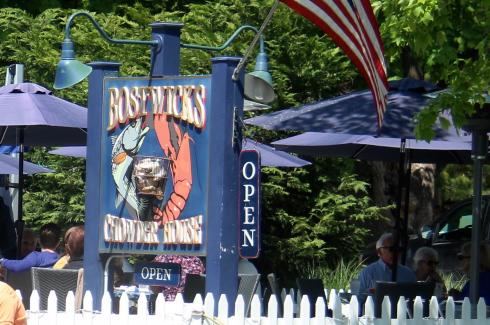Rigged, illegal, and high-stakes poker games have been held in recent years in various locales, including East Hampton, according to a federal indictment filed on Oct. 9.
The indictment accuses members of the Gambino crime family, National Basketball Association stars, and others — with nicknames like Black Tony and Albanian Bruce — of wire fraud, among several other charges.
Here in East Hampton in June 2023, at least two men, listed as John Doe #2 and John Doe #3, lost $46,500 and $105,000, respectively. The marks believed they were playing in a legitimate game of poker but in fact never had a chance of winning. The money they lost, sums in the thousands, was subsequently laundered, sometimes using cryptocurrency.
The indictment is part of a larger gambling scandal that is tarnishing the N.B.A. and a number of its players. The rigged games allegedly used the players, and possibly other professional athletes, as bait to draw in high net-worth gamblers.
The athletes, known by the organizers of the games as “face cards,” were paid out of the proceeds. Among those indicted were Chauncey Billups, head coach of the Portland Trail Blazers, and Damon Jones, best known for playing with the Cleveland Cavaliers. Both men have been arrested.
“These cases are often the result of major investigations, that can take years and involve multitudes of people and agencies,” said Carl Irace of Sag Harbor, who is a member of a federally assigned panel of defense lawyers and a Sag Harbor Village Court Justice. “It’s too soon to expect any significant details about the case, or to see anything that could shed any light on what is alleged to have been happening here in our community.”
In fact, neither of East Hampton’s police chiefs was notified about the case. It is not even clear from the court papers whether the games took place in the town or the village.
“We were never notified of any ongoing federal investigation related to gambling within our jurisdiction,” Town Police Chief Michael Sarlo wrote in an email.
Jeffrey Erickson, the village chief, said the feds had never contacted his detectives either, nor had they received any reports referencing illegal poker games.
The “marks,” who were lured to the games by the “face cards,” believed they were gambling on an equal footing with the other players. In fact, the defendants and their co-conspirators — the only other players in the games — were working together on “cheating teams.” They used “advanced wireless technologies to read the cards dealt in each poker hand,” according to the indictment, and shared that information with the team members.
Rigged shuffling machines were used to reveal the cards dealt to the victims and relay that information “via interstate wires, to an off-site operator.” That person then passed the information along to a middleman, who shared it with the team members at the table.
As if that were not enough, they also used rigged poker chip trays “that could secretly read cards placed on the poker table, card analyzers that utilized technology loaded onto decoy cellular telephones that could surreptitiously detect which cards were on the table, and playing cards that had markers visible only to individuals wearing specially designed contact lenses or sunglasses.”
The indictment named Louis Apicella, Ammar Awawdeh, John Gallo, Tony Goodson, Kenny Han, Osman Hoti, Horatio Hu, John Mazzola, Nicholas Minucci, and Robert Stroud as organizing and participating in the East Hampton game. Games also happened in New York City. In one, in a building on Lexington Avenue held at around the same time as the game held here, a man lost $1.8 million.
Losing players who failed to pay up in time were threatened, says the indictment, by members of the Bonanno, Gambino, and Genovese crime families.
Joseph Nocella Jr., U.S. attorney for the Eastern District of New York, signed the 22-page indictment, which lists 31 defendants and includes seven criminal counts, among them wire fraud, operation of an illegal gambling business, money laundering, extortion, and robbery.
Starting in April 2019, federal prosecutors claim that the rigged poker games have caused losses of over $7 million. Apparently not all of them were rigged, though they were all illegal. It is against state law to profit and promote a poker game without a gaming license.


